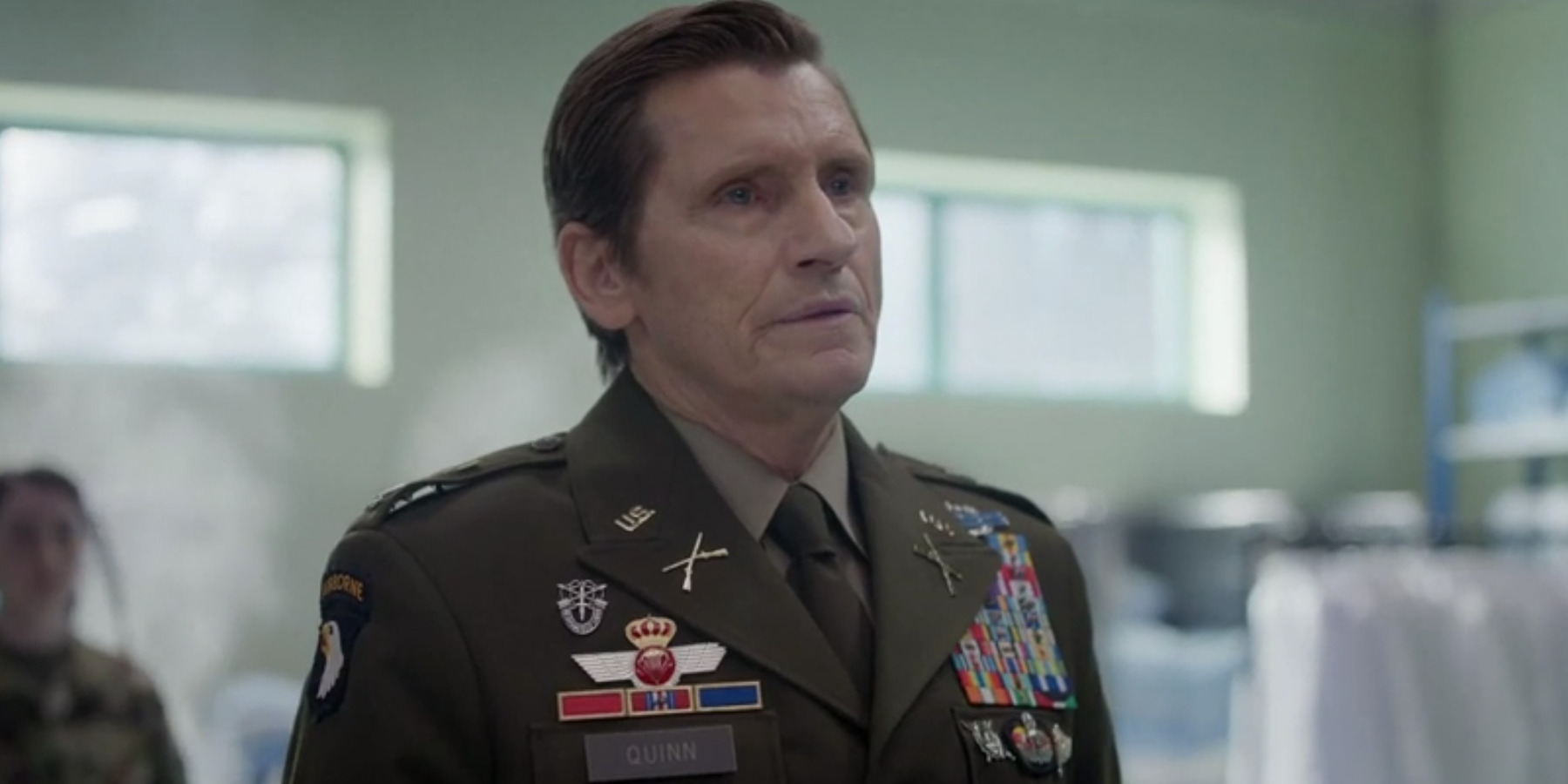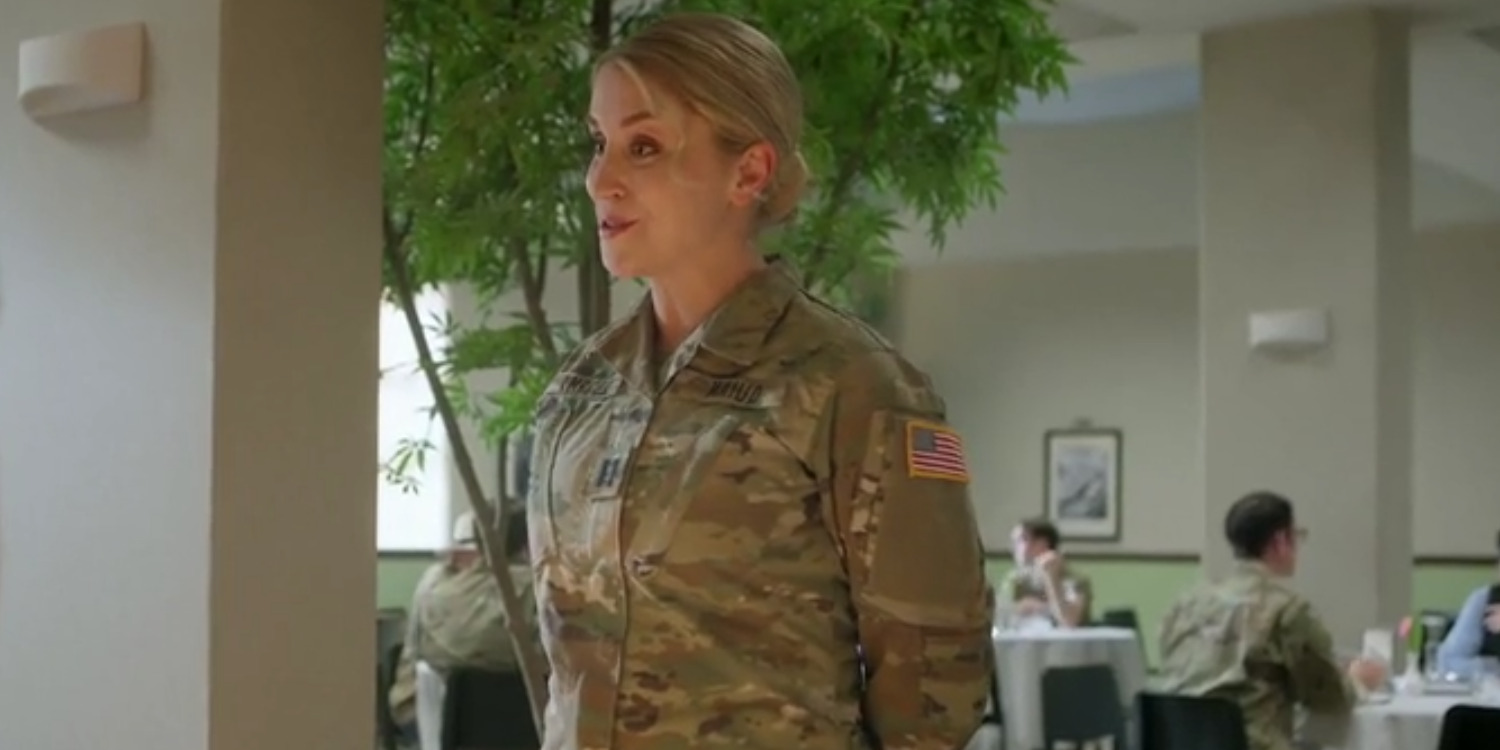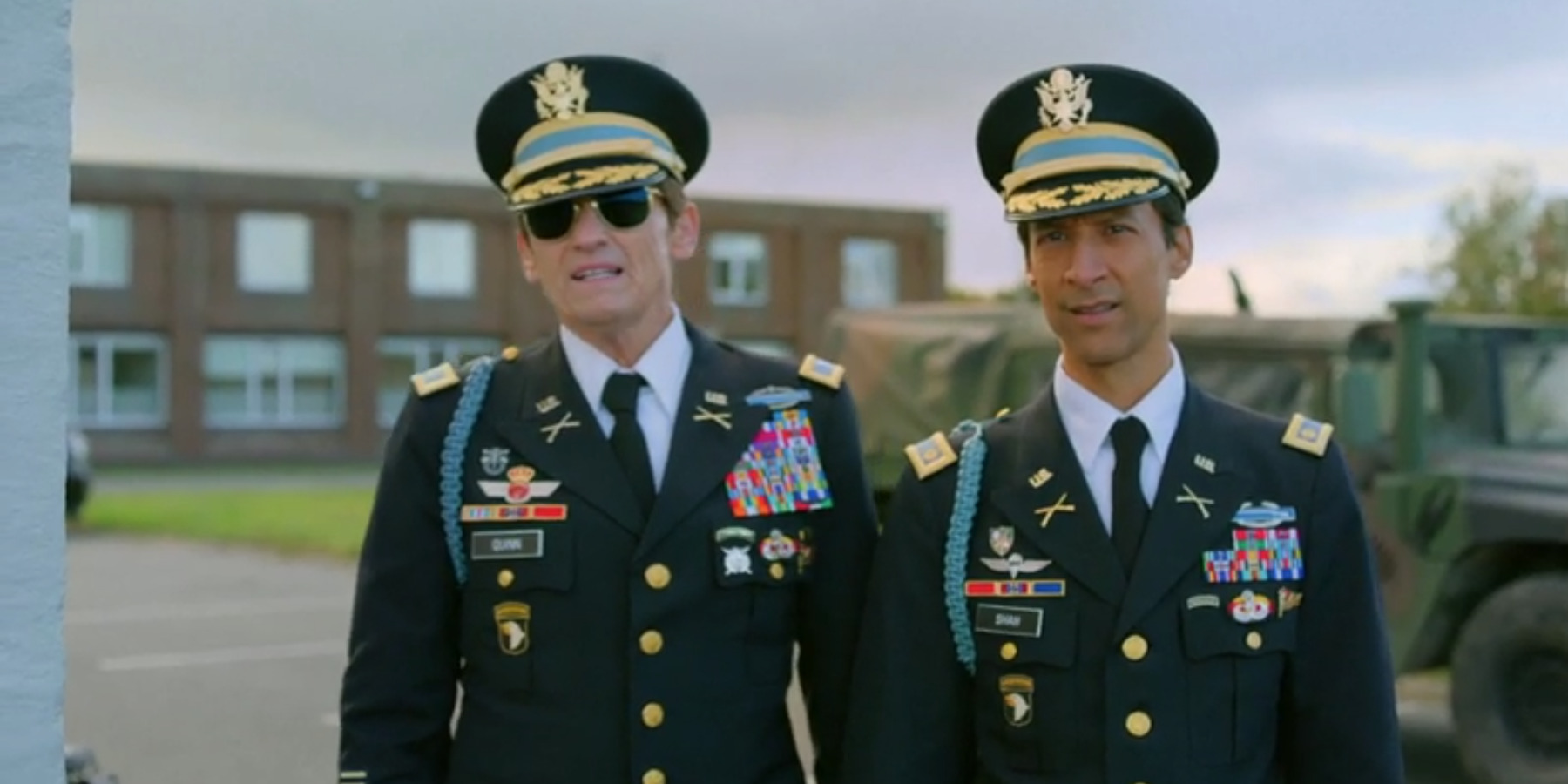The Fox workplace comedy show ‘Going Dutch’ introduces the audience to an unconventional army base where a by-the-book Colonel is forced into a den of surprisingly mellow soldiers. Colonel Patrick Quinn is a highly decorated army man with a penchant for military-level discipline and efficiency. However, one instance of unadulterated, foul-mouthed ranting invites enough ire from the higher-ups to get him relocated to an Army base in the Netherlands. The punishment proves to be effective enough as the base’s preference for things like a bowling alley and a fromagerie leaves little space for militaristic discipline.
With Captain Maggie, the former interim commander/Quinn’s estranged daughter, and the loyal Major Abraham Shah by his side, the Colonel must find a way to find control in the chaos. The Joel Church-Cooper show mines a treasure trove of comedy gold from its juxtapositional setting and compelling cast of characters. However, is there any reality behind the story’s origin?
Going Dutch’s Showrunner Based the Premise on His Real-Life Experiences
Given the sitcom genre that ‘Going Dutch’ occupies, most of the characters and instances that unravel on the screen are expectantly fictional in nature. Even so, the show’s base premise has intriguing roots in the showrunner Joel Church-Cooper’s life. The screenwriter, best known for his work on titles like ‘Brockmire,’ ‘Future Man,’ and more, used to work as a consultant for the Army. During this time, he witnessed the process of the Army closing down a base in the Netherlands. This experience served as the primary inspiration for Church-Cooper, who crafted his military-comedy show around the same experience. Furthermore, the showrunner also employed expert consultants on the set to ensure authenticity in the little details.

Still, most of the story and characters came solely from Church-Cooper’s imagination. However, it is likely that his past experience with a US base in the Netherlands contributed significantly to the final world-building. For instance, despite its eccentricity, the idea of a bowling alley in a US military base is actually not that unheard of. In fact, it is quite common for US Army bases—national or international—to sport a bowling center of some kind. Some of the most notable examples are the US Air Force Bowling Center in Yokota, Japan, and the Fort Polk US Army Base in Louisiana.
Yet, the show introduces Quinn’s new base as “the least important U.S. Army base in the world” for a reason. Much of the base’s portrayal—which is initially reserved for cheese-making or laundry, if not for the even more outlandish instances of tank-stealing—is likely an exaggeration with little to no basis in reality. Similarly, most of the characters retain fictitious origins without any real-life counterparts behind them. Nonetheless, their inter-dynamics, especially the father-daughter strife between the two Quinns, offers a grounding relatability. As such, the narrative balances out its more whacky scenarios with moments of authenticity.
Going Dutch Balances Familiarity with Originality
One of the advantages in ‘Going Dutch’s’ arsenal remains the well-trodden path that the unconventional workplace comedy employs. The show essentially operates within the confines of the well-established storytelling dynamic of the grumpy ringleader and their circus of eclectic personalities. From classics, such as the 1976 sports film ‘Bad News Bear’ to the more recent 2023 Woody Harrelson starter ‘Champions,’ the audience will easily recognize this trope. As such, Colonel Quinn and his humorously inconvenient predicament offer a distinguished premise within familiar boundaries.

On the other hand, Church-Cooper also looks to the show’s predecessor in farming inspiration for the overarching project to deliver charming and compelling entertainment. In a conversation with Fox Flash, the showrunner spoke about helming the project, which adds another military comedy to Fox’s belt more than a decade after its previous ‘Enlisted’ series. He said, “I was raised on the boundary-pushing Fox comedies of the ’90s, and I’m ecstatic to get the opportunity to continue the tradition for the next generation.” Similarly, Denis Leary, who plays the central straight-laced Patrick Quinn, has also spoken about the inspirations he equipped in portraying the on-screen Colonel.
In an interview with Fox News, Leary elaborated on his decision to base his performance on the real-life General George Patton. “(I said,) Listen, if I’m thinking about playing this guy (Quinn), I’m going to lean on George Patton and his characteristics because they match the colonel, and I know a lot about him,” the actor shared. “So being able to play the comedy version of that guy, that sort of vanity and that ego and that sort of self-importance was basically what I used as my reference point.” Consequently, with such inspirations and references, ‘Going Dutch,’ a mostly fictional sitcom, maintains a grounded narrative.
Read More: Going Dutch: Are USAG Stroopsdorf and Baumholder Real Military Bases?


You must be logged in to post a comment.